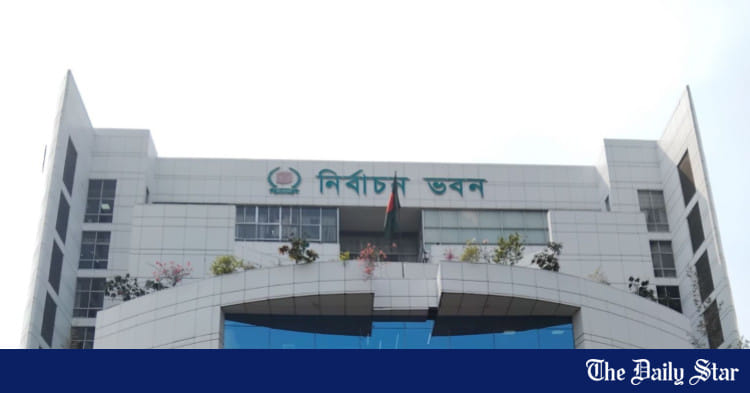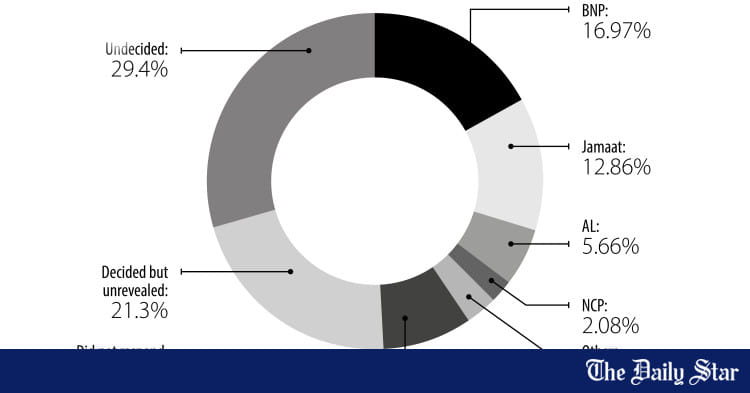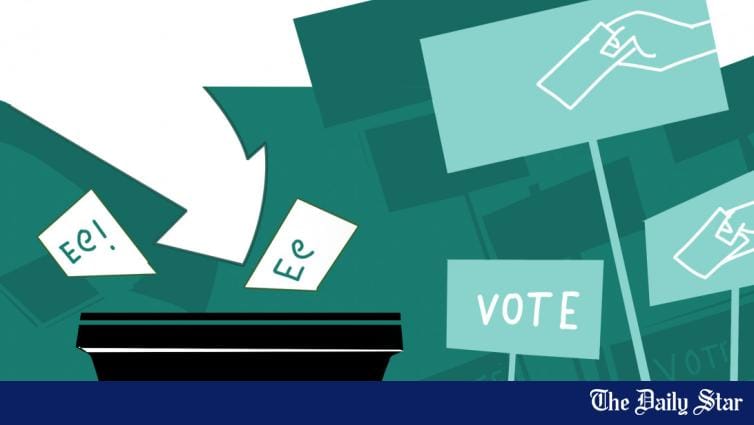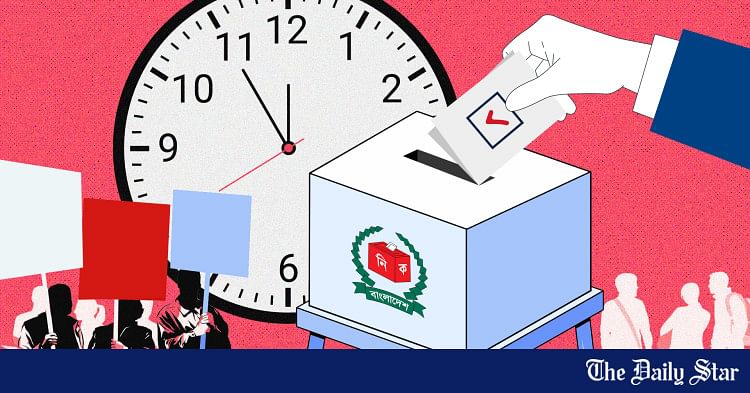- Copy to clipboard
- Thread starter
- #106
Saif
Senior Member
- Jan 24, 2024
- 11,509
- 6,442
- Origin

- Residence

- Axis Group


EC to review nine key areas of electoral reform
The Election Commission has been asked to provide its opinion on the Electoral Reform Commission’s recommendations, focusing on nine key areas of reform.
EC to review nine key areas of electoral reform

File photo
The Election Commission has been asked to provide its opinion on the Electoral Reform Commission's recommendations, focusing on nine key areas of reform.
Speaking at the Election Bhaban in Agargaon yesterday, EC Senior Secretary Akhtar Ahmed said, "The Cabinet Division has sought our opinion on these nine issues, and we will respond as soon as possible."
The proposed reforms include amendments to the Representation of the People Order, changes to the Election Commission Secretariat Act, election officer regulations, election observation and media guidelines, political party and candidate codes of conduct, draft affidavits, voter registration (including expatriates), postal ballots, transparency in electoral financing, and governance measures.
Ahmed said the chief election commissioner and EC members had discussed the proposals but could not yet disclose their recommendations.
When asked about the impact on upcoming elections, Ahmed said, "The impact will depend on the proposals. Our priority is to resolve these issues quickly so we can prepare for the December elections."
BCP challenges NCP's abbreviation
The Bangladesh Citizen Party (BCP) has objected to the abbreviation "NCP" used by the newly formed National Citizen Party, arguing that its correct short form should be "JNP" (Jatiya Nagorik Party).
BCP General Secretary Shahriar Khan Abir sent a letter to the EC on March 22, saying, "A party's name does not change regardless of the language it is written in."
EC Additional Secretary KM Ali Nawaz said the matter would be reviewed before a decision is made.
BCP, founded in 2018, is yet to be registered with the EC, while NCP, formed on February 28 by leaders of the July uprising, is the newest political entrant.
Meanwhile, a faction of the Jatiyo Party (JP) loyal to Raushan Ershad has applied to the EC for recognition of Raushan as party chair and Kazi Mamunur Rashid as secretary general.
The faction claims that JP's former chairman, GM Quader, led the party into the 2024 elections despite opposition from many leaders. At a meeting on February 24, they decided to remove Quader and General Secretary Mujibul Haque Chunnu.
Their letter argues that the leadership change aligns with party regulations and seeks EC recognition.
File photo
The Election Commission has been asked to provide its opinion on the Electoral Reform Commission's recommendations, focusing on nine key areas of reform.
Speaking at the Election Bhaban in Agargaon yesterday, EC Senior Secretary Akhtar Ahmed said, "The Cabinet Division has sought our opinion on these nine issues, and we will respond as soon as possible."
The proposed reforms include amendments to the Representation of the People Order, changes to the Election Commission Secretariat Act, election officer regulations, election observation and media guidelines, political party and candidate codes of conduct, draft affidavits, voter registration (including expatriates), postal ballots, transparency in electoral financing, and governance measures.
Ahmed said the chief election commissioner and EC members had discussed the proposals but could not yet disclose their recommendations.
When asked about the impact on upcoming elections, Ahmed said, "The impact will depend on the proposals. Our priority is to resolve these issues quickly so we can prepare for the December elections."
BCP challenges NCP's abbreviation
The Bangladesh Citizen Party (BCP) has objected to the abbreviation "NCP" used by the newly formed National Citizen Party, arguing that its correct short form should be "JNP" (Jatiya Nagorik Party).
BCP General Secretary Shahriar Khan Abir sent a letter to the EC on March 22, saying, "A party's name does not change regardless of the language it is written in."
EC Additional Secretary KM Ali Nawaz said the matter would be reviewed before a decision is made.
BCP, founded in 2018, is yet to be registered with the EC, while NCP, formed on February 28 by leaders of the July uprising, is the newest political entrant.
Meanwhile, a faction of the Jatiyo Party (JP) loyal to Raushan Ershad has applied to the EC for recognition of Raushan as party chair and Kazi Mamunur Rashid as secretary general.
The faction claims that JP's former chairman, GM Quader, led the party into the 2024 elections despite opposition from many leaders. At a meeting on February 24, they decided to remove Quader and General Secretary Mujibul Haque Chunnu.
Their letter argues that the leadership change aligns with party regulations and seeks EC recognition.







